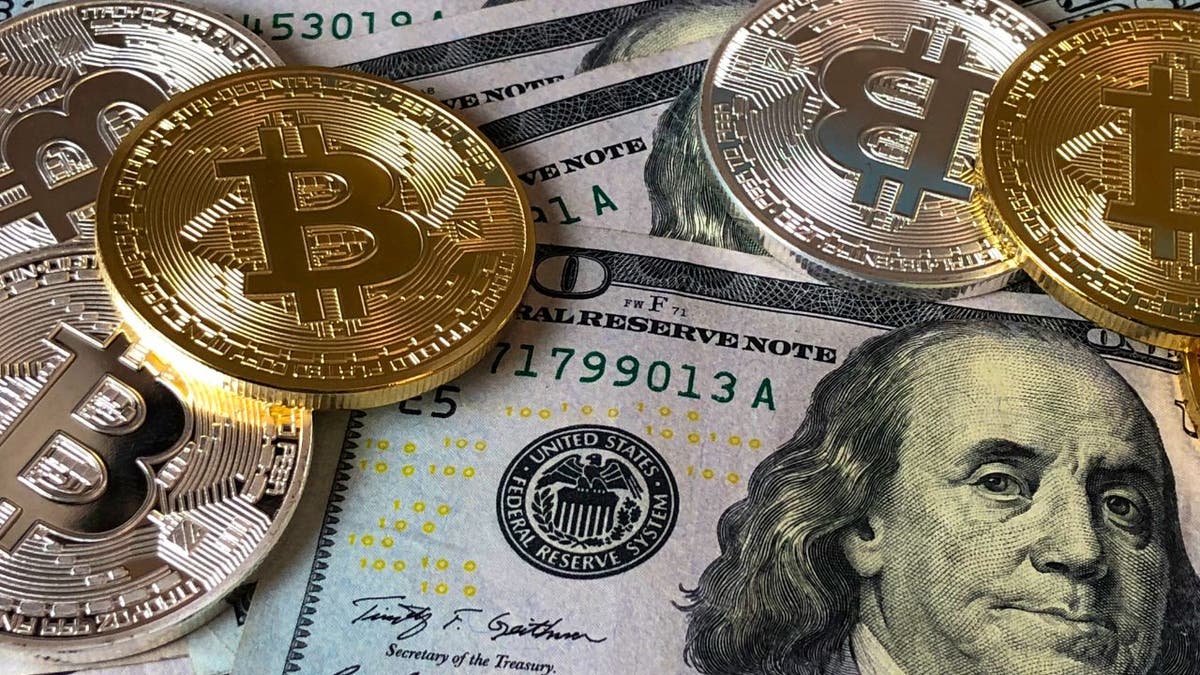Picture this – you’re cleaning out your email inbox, sifting through your junk folder, and you come across not one, but two cold emails. Both claim that your account has been hacked, claiming full access to all of your accounts. The threat? Alleged videos of you in compromising situations, ready to be broadcast to your entire contact list unless a ransom in Bitcoin, totaling around USD 500, is paid within a specific time frame. Sounds like a nightmare, right?
That’s exactly what happened to one of our own readers, Barbara, who reached out to us with her troubling experience.
Bitcoin extortion scams: how do they work?
These intimidating emails that Barbara came across are a classic example of a Bitcoin extortion scam. Here, fraudsters demand access to your sensitive information and demand payment in cryptocurrencies such as Bitcoin, which takes advantage of their perceived anonymity. The scammers may even make up stories of hacking into your computer or webcam or installing stealth software to monitor you: scary stuff, but mostly tall tales.
CLICK TO GET KURT’S FREE CYBERGUY NEWSLETTER WITH SECURITY ALERTS, QUICK TIPS, TECH REVIEWS AND EASY HOW-TO’S TO MAKE YOU SMARTER
Bitcoin extortion scams often feed on usernames and passwords obtained from previous security breaches. (CyberGuy.com)
SMART SPAMMERS TO END UNSOLICITED EMAIL FINAL
These scams often feed on usernames and passwords obtained from previous security breaches. If the intimidating email contains one of your past – or current – passwords, that’s an alarm bell ringing. This is a signal to refresh the password for that account, and while you’re at it, consider updating your other passwords as well.
What happens when you pay?
If you fall victim to a Bitcoin extortion scam and decide to pay the ransom, the outcome is far from certain. Although scammers may promise to keep the allegedly compromising information confidential, there is no guarantee that they will honor their word. In many cases, victims who pay the ransom find themselves trapped in a never-ending cycle of demands, with the scammers constantly seeking more money.
MORE: TOP IDENTITY THEFT TRAITS TO AVOID
Challenges in Recovering Funds Lost to Cryptocurrency Scams
Moreover, even if you make the payment, it can be extremely challenging to recover the funds or identify the perpetrators. Cryptocurrencies like Bitcoin offer a certain level of anonymity, making it difficult to trace transactions back to the scammers. However, in some cases, victims have sought help from specialized crypto-forensic firms that use sophisticated techniques to track and trace cryptocurrency transactions. While these services can help in some cases, they often come with a hefty price tag, making them inaccessible to many.

Crypto scams to be aware of include: fraudulent ICOs, phishing attempts and Ponzi schemes. (CyberGuy.com)
MORE: CHECKLIST SCAM IS THE LATEST SCAM TARGETED AT YOU
Other crypto scams to be aware of
Bitcoin extortion scams are just one piece of the big puzzle of crypto-related scams. From fraudulent initial coin offerings (ICOs) to phishing attempts and Ponzi schemes, cryptocurrencies have unfortunately become a breeding ground for nefarious activities. According to crypto-scams.com, several extortion scams are circulating that exploit the reputation and supposed anonymity of Bitcoin.
Fraudulent ICOs are one example. These scams offer investors new cryptocurrencies or tokens, promising incredible returns on their investments. However, many of these projects are nothing more than smoke and mirrors, leaving investors with empty wallets and shattered dreams.
Phishing attempts are another common crypto scam. Scammers create sophisticated emails or websites impersonating legitimate platforms to trick users into revealing sensitive information, such as passwords or private keys. Once the scammers have this information, they can gain unauthorized access to victims’ accounts and steal their funds.
Ponzi schemes, a classic form of fraud, have also found their way into the crypto world. These scams work by promising high returns to investors, typically from new investors’ funds rather than from actual profits. As the scheme grows, it eventually collapses, leaving the majority of participants with a loss.
Unfortunately, these crypto scams exploit cryptocurrencies like Bitcoin’s reputation and perceived anonymity. The decentralized nature of crypto transactions can make it challenging to trace and recover funds, making them an attractive playground for fraudsters.
FOR MORE OF MY SECURITY ALERTS, SUBSCRIBE TO MY FREE CYBERGUY REPORT NEWSLETTER BY GOING TO CYBERGUY.COM/NEWSLETTER
DON’T BE TEMPTED TO CLICK ON THAT PICTURE IN THAT EMAIL IN YOUR INBOX

There are several steps you can take to avoid these scams, such as not responding to the email, deleting it immediately, changing your passwords, and reporting the scam. (CyberGuy.com)
Steps to take when you receive a threatening Bitcoin email
If you’re caught in a similar predicament and receive one of these threatening Bitcoin emails, here’s the game plan:
Do not respond to threatening emails: Do not respond to or contact the sender of a threatening email – period.
Delete the email immediately: Delete the message or email immediately. This is a scam.
Don’t send money: Never send Bitcoin that an unknown sender claims via email.
Update your passwords: It is possible that you received this email because your data was exposed during a data breach that occurred. That means it’s time to update your passwords. Create strong passwords for your accounts and devices and avoid using the same password for multiple online accounts. Consider using a password manager, which securely stores and generates complex passwords, reducing the risk of password reuse. Check out my best expert-reviewed password managers at Cyberguy.com/Passwords.
CRYPTO-MINING ATTACK APPLE MAC WITH BROKEN SOFTWARE
Report the scam: You can report Bitcoin extortion emails to the FBI, the local police, and to the FTC.
Scan your computer for viruses: Having good antivirus software installed on all your devices can help prevent hackers from accessing your personal information and protect you from clicking on malicious links, such as those found in Bitcoin e-mails. scams are found. Get my expert-reviewed best antivirus protection for your iPhone, Android, Mac and PC at Cyberguy.com/LockUpYourTech.
Enable two-factor authentication whenever possible. Two-factor authentication adds an extra layer of security by requiring a second form of verification, such as a code sent to your phone, in addition to your password.
Invest in identity theft protection services. Identity theft protection companies monitor your personal information, such as your home title, Social Security Number (SSN), phone number, and email address for purchase on the dark web or to open accounts. They can also help freeze your bank and credit card accounts. Some providers even offer identity theft insurance and a fraud resolution team to help with recovery. Get my best expert-reviewed identity theft protection services at Cyberguy.com/IdentityTheft.
Keep your software up to date. Regularly update your operating system, antivirus software, web browsers and other applications to ensure you have the latest security arrangements and protection.
Kurt’s main takeaways
In the ever-evolving landscape of cryptocurrencies, scams and fraudulent activities have unfortunately become an all too common occurrence. From Bitcoin extortion schemes to ICO scams, phishing attempts and Ponzi schemes, the realm of crypto has its fair share of pitfalls. As we strive to embrace the potential benefits of digital currencies, it becomes extremely important to be aware, educated and vigilant to protect ourselves from these scams.
CLICK HERE TO GET THE FOX NEWS APP
Have you ever encountered or heard of crypto scams? How do you stay one step ahead of fraudsters in the crypto world? Let us know what you think by writing to us at Cyberguy.com/Contact
For more of my security alerts, subscribe to my free CyberGuy Report Newsletter by going to CyberGuy.com/Newsletter
Copyright 2023 CyberGuy.com. All rights reserved.
Disclaimer for Uncirculars, with a Touch of Personality:
While we love diving into the exciting world of crypto here at Uncirculars, remember that this post, and all our content, is purely for your information and exploration. Think of it as your crypto compass, pointing you in the right direction to do your own research and make informed decisions.
No legal, tax, investment, or financial advice should be inferred from these pixels. We’re not fortune tellers or stockbrokers, just passionate crypto enthusiasts sharing our knowledge.
And just like that rollercoaster ride in your favorite DeFi protocol, past performance isn’t a guarantee of future thrills. The value of crypto assets can be as unpredictable as a moon landing, so buckle up and do your due diligence before taking the plunge.
Ultimately, any crypto adventure you embark on is yours alone. We’re just happy to be your crypto companion, cheering you on from the sidelines (and maybe sharing some snacks along the way). So research, explore, and remember, with a little knowledge and a lot of curiosity, you can navigate the crypto cosmos like a pro!
UnCirculars – Cutting through the noise, delivering unbiased crypto news















